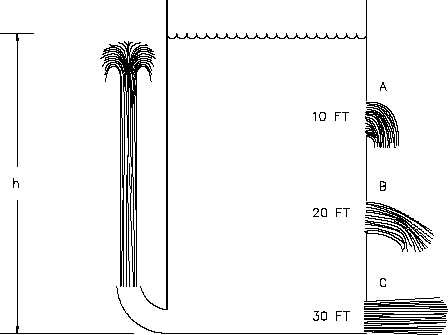Fluid Flow
CONTINUITY EQUATION
If a body weighs more than the liquid it displaces, it sinks but will appear to lose an amount of
weight equal to that of the displaced liquid, as our rock. If the body weighs less than that of the
displaced liquid, the body will rise to the surface eventually floating at such a depth that will
displace a volume of liquid whose weight will just equal its own weight. A floating body
displaces its own weight of the fluid in which it floats.
Compressibility
Compressibility is the measure of the change in volume a substance undergoes when a pressure
is exerted on the substance. Liquids are generally considered to be incompressible. For instance,
a pressure of 16,400 psig will cause a given volume of water to decrease by only 5% from its
volume at atmospheric pressure. Gases on the other hand, are very compressible. The volume
of a gas can be readily changed by exerting an external pressure on the gas
Relationship Between Depth and Pressure
Anyone who dives under the surface of the water notices that the pressure on his eardrums at a
depth of even a few feet is noticeably greater than atmospheric pressure. Careful measurements
show that the pressure of a liquid is directly proportional to the depth, and for a given depth the
liquid exerts the same pressure in all directions.
Figure 1 Pressure Versus Depth
Rev. 0
Page 3
HT-03


